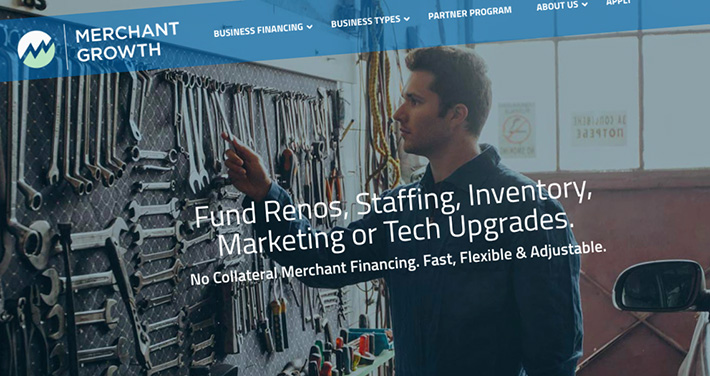Archive for 2019
Confession of Judgment Bill Still Awaits Governor’s Signature
July 9, 2019 New York State Governor Andrew Cuomo will have only ten days to sign S6395, the bill that prohibits companies from entering Confessions of Judgment in New York against non-New York State debtors, once its delivered to him. Only two possible contingencies could prevent that from happening:
New York State Governor Andrew Cuomo will have only ten days to sign S6395, the bill that prohibits companies from entering Confessions of Judgment in New York against non-New York State debtors, once its delivered to him. Only two possible contingencies could prevent that from happening:
(1) An official veto
(2) a pocket veto
Neither is expected to take place. Reining in the use of COJs was an official part of the Governor’s 2019 justice agenda.
The law only requires that a debtor reside or have a place of business in a New York county and that the judgment only be filed and entered in that county. Whether the filing party is located in New York or Florida or Alaska makes no difference. For a personalized legal analysis, contact an attorney.
The law also only affects a narrow process, the entering of a COJ in New York. It does not prevent parties from filing lawsuits in New York.
As the bill requires the Governor’s signature to become law, the usage of COJs in New York has dwindled but has not disappeared. New York State court records examined by deBanked demonstrate that some companies are continuing to file COJs in New York against out-of-state debtors and that county clerks are continuing to honor them. However, a handful of debtors appear to be challenging previously entered COJs on the basis of S6395’s passage through the state legislature. It remains to be seen how fruitful such defenses might be.
In recent weeks, a number of companies in the small business finance industry have publicly announced that COJs will no longer be required going forward.
You can follow the bill’s path to the Governor’s office here.
This article has been updated to reflect that the deadline rules first require delivery to the Governor
Peer-to-Peer Lending’s Global Struggle
July 8, 2019New rules were introduced to peer-to-peer lending in Britain this month with the introduction of Policy Statement 19/14 by the government. The document heralds in a number of new processes that will be required to be enacted by peer-to-peer lending platforms in the UK by early December this year, if they are to continue operating unmolested.
Among these rules is the expectation for stricter transparency and honesty between platforms and potential investors, specifically with regard to the practice of using borrowers’, investors’, and even the business’s own money to pay for defaulted loans. As well as this there is the introduction of appropriateness tests to ensure that those who are candidates to become investors understand the various risks of the industry they are prospecting.
Such tests aren’t new to the alternative finance industry, as they have been previously employed for both crowd bonds and equity crowdfunding. But that doesn’t mean that they will comfortably slide into use among peer-to-peer lending processes. The question about when they will be asked to complete the test during the application, be it at the beginning, upon completion of the first form, or after receiving confirmation of a loan, remains unanswered; there are concerns that lending platforms will take a ‘tick all boxes’ approach and pose unsatisfactory questions; and the fear that only larger firms will be able to afford the costs to install these compliance checks, thus edging out smaller peer-to-peer lending companies from the market, is common.
 The publication of the document comes after years of success for peer-to-peer lending within the British market. With the previous 12 months showcasing £6.7 billion in peer-to-peer loans being taken out, more than any other European country, the market initially appears to be doing well, but stories about firms collapsing or exiting from the industry indicate otherwise. For example, Lendy, one of the first and largest peer-to-peer platforms in the UK collapsed and left 20,000 investors uncertain about the £160 million that was outstanding in loans; while BondMason withdrew completely from the market, pivoting into alternative property investment services.
The publication of the document comes after years of success for peer-to-peer lending within the British market. With the previous 12 months showcasing £6.7 billion in peer-to-peer loans being taken out, more than any other European country, the market initially appears to be doing well, but stories about firms collapsing or exiting from the industry indicate otherwise. For example, Lendy, one of the first and largest peer-to-peer platforms in the UK collapsed and left 20,000 investors uncertain about the £160 million that was outstanding in loans; while BondMason withdrew completely from the market, pivoting into alternative property investment services.
Looking forward, it appears as if lending platforms in the UK may become less reliant on retail investors and seek out more institutional investors who better understand the risks of peer-to-peer lending.
Peer-to-peer lending has gone through it own iterations in the US, with two platforms still thought of as peer-to-peer (but perhaps are no longer!) recently squaring off with the SEC. Last year, two former executives of Lending Club agreed to settle charges with the SEC for improperly adjusting returns of a related fund and this past April, Prosper Funding LLC agreed to pay a $3 million penalty for miscalculating and materially overstating annualized net returns to retail and other investors.
It could be worse.
China is currently watching its own peer-to-peer lending market collapse, despite the industry previously having drawn 50 million investors. With estimates claiming that half of the market was wiped out in 2018, and forecasts saying that 70% of those that survived will be gone by year end, China is on track to lose 85% of its peer-to-peer platforms within 24 months. This follows a number of cases of executives of Chinese peer-to-peer lending firms embezzling money and fleeing, leading to stories like the 31-year-old woman who hung herself when faced with the reality of losing $40,000 after a shareholder of PPMiao, a state-backed peer-to-peer platform, ran off when the firm went bust, reneging on any accountability.
“It’s amazing how quickly it’s unraveling,” said Zennon Kapron, the managing director of Shanghai-based consulting firm Kapronasia, about the peer-to-peer industry. And while Kapron was speaking about the Chinese market, governments worldwide have shifted from nurturing peer-to-peer lenders to policing them and diligently trying to rein them in.
Making it Work: CanaCap and the Case for Canada
July 5, 2019 What leads an alternative financer to establish their own business in Canada? For Evan Marmott and his partner Adam Benaroch, it was the level of opportunity that the country offered in comparison to United States, where the alternative funding industry had become bloated and saturated with funders and brokers alike by 2017, when the pair established CanaCap.
What leads an alternative financer to establish their own business in Canada? For Evan Marmott and his partner Adam Benaroch, it was the level of opportunity that the country offered in comparison to United States, where the alternative funding industry had become bloated and saturated with funders and brokers alike by 2017, when the pair established CanaCap.
Holding over 30 years of experience in alternative finance between them, Marmott and Benaroch founded CanaCap with the intention of capitalizing off interested Canadian merchants that were much more receptive to the message of brokers and funders. Not being bombarded by constant emails and advertisements for quick loans, Marmott says, leads Canadian business owners to be more open-minded to discussing alternative funding with brokers, resulting in both a better understanding of the conditions of the financing as well as more time on the phone to make deals. And on top of this, the lack of a dominant player within the alternative funding world of Canada leads to a divided market share, allowing small and large firms alike to succeed.
Accompanying this advantage of time and space within the market is the quality of merchants found in Canada. Claiming that Canadian merchants generally perform better than American business owners when repaying debts, Marmott explains that funders operating north of the border can expect to have a “cleaner” portfolio.
And lastly, the level of product knowledge amongst potential customers appeared to be just right to Marmott and Benaroch. With the former noting how CanaCap is unique in its willingness to offer second positions to Canadian businesses, Marmott highlights how his company benefits from larger financers, such as OnDeck, who many of their customers would go to first, learn about the funding process, be denied funds, and then be picked up by CanaCap after further researching the industry.
With offices in both Montreal and New York, the latter of these being for CapCall, the American counterpart to CanaCap, Marmott is well-attuned to the differences between the two markets. And while he concedes that the downside of brokering in the Great White North is the 30% that is clipped from commissions due to currency exchange, he affirms that the savings from reduced marketing costs, providing better return on investment rates, offset this loss.
Altogether, the CEO makes a convincing case for why one should consider alternative financing in Canada. Taking the tack that the country provides a fresh slate of sorts to financers, where merchants have yet to be inundated with offers, promotions, and horror stories about the industry, Marmott and Benaroch have enjoyed success with their model of approving over 90% of their applicants and streamlining the application process as to increase turnaround times.
With plans to stay put for the foreseeable future, Marmott says that he’s “looking forward to funding small businesses” as his company continues to service the entire country and the alternative finance industry in Canada develops. A plan that doesn’t sound too bad, especially with signs pointing towards increased growth and further interest from merchants.
Merchant Advance Capital Rebrands to Merchant Growth
July 3, 2019 Merchant Advance Capital, which trumpets itself as Canada’s fastest and most transparent small business financier, is rebranding as Merchant Growth.
Merchant Advance Capital, which trumpets itself as Canada’s fastest and most transparent small business financier, is rebranding as Merchant Growth.
The company has offices in Vancouver, BC and Toronto, ON and was founded in 2009.
“I founded our company out of my apartment 10 years ago,” David Gens is quoted as saying in a company announcement. Gens is the company’s president & CEO. “Back then our mission was simply to provide credit to small businesses, and we did that by providing one product, called a ‘merchant advance’. Today, we offer a comprehensive suite of financing solutions delivered with unparalleled convenience. In doing so, our mission has expanded to allowing business owners to achieve unconstrained growth, while reducing the administrative stress of running a business. As we’ve transformed our focus from one credit product to this far-reaching mission, we felt the need for our name to reflect this. We are Merchant Growth.”
Gens has been an oft-quoted source in deBanked over the years. His company closed on a $30 million debt facility last year with Comvest Credit Partners.
Gens is also speaking at deBanked CONNECT Toronto on July 25, 2019. You can register to attend at www.debankedcanada.com.
Forgiving the Unforgivable: Democrats Propose Wide Range of Solutions for Student Debt
July 1, 2019 To forgive or not to forgive? That is the question as Democratic presidential candidate hopefuls line up to state whether or not they are still repaying their student loans (and if this repayment reaches six figures) and what their intentions for the student loan crisis are, leading to the $1.6 trillion debt becoming one of the central issues of this race.
To forgive or not to forgive? That is the question as Democratic presidential candidate hopefuls line up to state whether or not they are still repaying their student loans (and if this repayment reaches six figures) and what their intentions for the student loan crisis are, leading to the $1.6 trillion debt becoming one of the central issues of this race.
With calls coming forward from all corners of the Democratic Party, voters are seeing a wide range of options for how to tackle what has been hailed as the potential cause of the next financial crash, the only thing is, not everyone is clear about how they intend to pay for it.
Last week Bernie Sanders surprised many with his calls to forgive all student debt. Prior to this, Elizabeth Warren announced that she planned to cancel debt “for more than 95%” of those burdened with loan debt. And while these candidates have led the charge of progressive arguments for how to deal with the debt crisis, the popularity of their proposed policies has baited other Democrats to follow suit.
 Joe Biden, who remains the frontrunner despite criticisms of his performance in the first debate, has said that he wants to forgive teachers’ student loans. South Bend Mayor Pete Buttigieg wants to solve the problem by offering free college to those coming from lower-income and middle-class backgrounds, saying in the debate that he does not “believe it makes sense to ask working-class families to subsidize even the children of billionaires.” Robert O’Rourke has suggested cancelling the debt of those who work in fields or areas where there is a low supply of labor. Kamala Harris has called for debtless tuition and lower interest rates on existing loans. And Eric Swalwell, the Californian congressman, has proposed forgiving debt in exchange for engaging in work-study programs and community service while at college.
Joe Biden, who remains the frontrunner despite criticisms of his performance in the first debate, has said that he wants to forgive teachers’ student loans. South Bend Mayor Pete Buttigieg wants to solve the problem by offering free college to those coming from lower-income and middle-class backgrounds, saying in the debate that he does not “believe it makes sense to ask working-class families to subsidize even the children of billionaires.” Robert O’Rourke has suggested cancelling the debt of those who work in fields or areas where there is a low supply of labor. Kamala Harris has called for debtless tuition and lower interest rates on existing loans. And Eric Swalwell, the Californian congressman, has proposed forgiving debt in exchange for engaging in work-study programs and community service while at college.
The means by which each of these proposals will be paid for has varied from candidate to candidate, with some offering detailed plans, and others, verbal assurances. Both Warren and Sanders have published how they will raise funds for their strategies, with the former stating that she will impose a 2% tax on Americans with $50 million or more in wealth, and the latter proposing a tax on Wall Street speculators that he claims will raise $2.4 trillion over a ten-year period. Meanwhile, other candidates have yet to clarify how their solutions will be financed; and these announcements are being made just as the Congressional Budget Office’s most recent evaluation of the 2017 Republican-backed tax cut has estimated the net cost of the cuts to come to $1.9 trillion – $3 trillion more than the total sum of student debt.
The conversation generated from these announcements has spilled out beyond debates and candidate interviews, as non-political figures such as Mark Cuban, Jamie Dimon, and Gary Vaynerchuk have each contributed their two cents. The last of these has explained that he sees the next generation of Americans as the ones who will “walk away” from colleges as they are known now; Dimon has gone on record in his annual letter to JPMorgan Chase shareholders to call the crisis a “disgrace” that is “hurting America”; and Cuban has partnered with ChangEd, a program that seeks to assist students in paying off their debts, as part of an event to help high school and college students learn more about their future finances.
Interactions like these, between popular figures and the hot topic that student debt has become, are increasing in frequency, and as the Democratic primaries run on it is likely this trend will continue. However, it is too early to say which side of Dems will win, pro-forgiveness or a lighter, less dramatic form of relief for students.
With reports indicating the extent to which student loans affect the 45 million indebted Americans who took them out, it appears that this will be one of the major issues to shape the primary and presidential races. Stories of graduates sacrificing opportunities to marry, have children, buy a home, and even continue careers in the fields they studied beg the question of what exactly the benefit of college is. The next year will demonstrate whether Democrats are able to drum up an answer.
2M7 Financial Solutions and the State of Alternative Funding in Canada
July 1, 2019 “What’s a cash advance?”
“What’s a cash advance?”
This is how Avi Bernstein, CEO of 2M7 Financial Solutions, recalled a typical conversation in 2008, when his company was founded in the Canadian market. According to him, customer knowledge of alternative financing methods was dismal, partly due to a handful of homogenous banks dominating the scene as well as a void of funders in the country.
Flash forward to 2019 and 2M7 is operating within a Canadian market that is much more trusting and knowledgeable of merchant cash advances, although it is not yet at the levels witnessed in the U.S.
“Low hanging fruit,” is how Bernstein describes the industry now, as small and medium-sized businesses are flocking to 2M7 and its contemporaries, which offer higher approval ratings and faster confirmation of funding than their more traditional counterparts. In fact, according to a 2018 study conducted by Smarter Loans, 24% of those Canadians surveyed stated that they sought their first loan with an alternative lender that year. As well as this, only 29% reported that they pursued funding from more established, traditional financial institutions and 85% of those that received financing confirmed their satisfaction.
Figures like these help to explain why the Canadian market has seen a rise in interest from foreign businesses in the previous five years. Greenbox Capital, First Down Funding, and Funding Circle are examples of those companies who have successfully implanted themselves within the market, a feat that Bernstein claims isn’t easy.
 “It’s a different business,” he notes when comparing the market to that of the U.S. Listing the dissimilarities in market maturity levels, sales tactics, processing channels, and collection styles, as well as the currency exchange rate that’s to be considered, Bernstein says that he’s found those American funders who come to Canada unprepared never stay long enough to become a fixture of the industry.
“It’s a different business,” he notes when comparing the market to that of the U.S. Listing the dissimilarities in market maturity levels, sales tactics, processing channels, and collection styles, as well as the currency exchange rate that’s to be considered, Bernstein says that he’s found those American funders who come to Canada unprepared never stay long enough to become a fixture of the industry.
Warning against half measures, Bernstein explains that “You’ve gotta put boots on the ground” if you want to succeed in Canada. Giving the impression that unless you’re willing to learn the rules applied in the market, hire people, and house them in an office north of the American border, Bernstein is keen to highlight what’s required of foreign companies looking with interest at Canada.
But it’s a risk-reward situation. The market is opening up as more funders enter it, and with the arrival of larger companies, such as OnDeck Capital, more resources are being devoted to raising awareness of alternative financing amongst Canadians.
Meanwhile, homogenous firms like 2M7 are continuing to grow in this developing market. Receiving an average of 200-300 applications for funds per month, 2M7 is capitalizing off opportunities by proving themselves to be open to a wider range of applications. Bernstein asserts that “we try to fund everything,” and that they keep an “open mind to every opportunity” that lands on their desk. Perhaps this is a mindset not shared by more conservative of funders in the industry, but, as Bernstein says, “we’re here, we’re funding, and we’re ready to rock n’ roll.”
You can meet Avi Bernstein and 2M7 at deBanked CONNECT Toronto on July 25th.
“You Can’t Stay Static”: Paul Teitelman and the Building of an SEO Firm
June 30, 2019
 How does someone become an SEO expert? How does someone found a successful SEO consultancy firm? For Paul Teitelman, his road to SEO mastery and independence started by admitting he knew nothing about the industry.
How does someone become an SEO expert? How does someone found a successful SEO consultancy firm? For Paul Teitelman, his road to SEO mastery and independence started by admitting he knew nothing about the industry.
Beginning in the late noughties, following his graduation in Marketing Management from Dalhousie University, Teitelman went to an Interactive Advertising Bureau job fair, pitched himself to his soon-to-be boss, and replied, “No! But I’m your man. I’ll learn it all,” when asked if he knew anything about SEO.
Thus began his tenure at Search Engine People, one of Canada’s first Search Engine Marketing companies. Here he entered as a Link Ninja and learned the trade by implementing SEO campaigns for both Fortune 100 and 500 companies as well as for local businesses. From this, he advanced to a managerial position, in which he led teams of SEO specialists who were responsible for ensuring clients would appear at the top of Google search pages. And then, in 2011, Teitelman left Search Engine People to make his own way, becoming the CEO and founder of his self-titled, Toronto-based SEO consultancy firm.
How did the move to independence pan out? Well, as of June 2019 he has hired his 25th employee, his team is kept busy servicing the needs of clients, and he experiments with pioneering SEO strategies and theories within his own blog network. Claiming that his firm offers “the best of both worlds” as a result of him having worked on both ends of the SEO spectrum, Teitelman explains that clients benefit from his offering of the transparency, promptness, and directness that are inherent with small firms; and that he reaps the reward of an agency price tag, a perk that comes with producing consistently successful SEO work.
 When asked about how others could follow in his footsteps, he said, regardless of the industry, whether you’re an SEO expert or broker, that “you can’t stay static.” Emphasizing the necessity of having foresight when you leave your old job, Teitelman notes that entrepreneurs need to stay ahead of the curve of trends, be that an update to Google’s search result algorithm or a niche opening in the alternative finance market. As well as this, Teitelman highlighted the importance of being secure in that knowledge that when you leave to make it independently you will have a list of clients to take with you, who’ll keep you from leaving yourself high and dry.
When asked about how others could follow in his footsteps, he said, regardless of the industry, whether you’re an SEO expert or broker, that “you can’t stay static.” Emphasizing the necessity of having foresight when you leave your old job, Teitelman notes that entrepreneurs need to stay ahead of the curve of trends, be that an update to Google’s search result algorithm or a niche opening in the alternative finance market. As well as this, Teitelman highlighted the importance of being secure in that knowledge that when you leave to make it independently you will have a list of clients to take with you, who’ll keep you from leaving yourself high and dry.
And much like how the merchant cash advance scene in Canada has seen an increase in both interest and product knowledge amongst customers over recent years, as has SEO. Subject to myth-making and conjecture as a result of its technical lingo and specialized nature, SEO has long been the victim of misunderstanding according to Teitelman, who says those who are curious about the service “shouldn’t believe everything they read on the internet.”
Going on to say that “the more education customers get, the more exciting the industry becomes,” it’s clear that Teitelman is looking forward to the future of SEO. Time will tell if his offer back in 2008 will be matched by interested industries, curious about the possibilities that SEO promises and willing to “learn it all.”
Paul Teitelman is also speaking on a sales and marketing strategies panel at deBanked CONNECT Toronto on July 25th alongside Smarter Loans President Vlad Sherbatov and SharpShooter Funding Managing Partner Paul Pitcher.
Expansion Capital Group Names Herk Christie Chief Operating Officer
June 28, 2019 Sioux Falls, SD — Expansion Capital Group ECG) today announced the appointment of Herk Christie from VP of Operations to Chief Operating Officer. Christie will oversee the company’s underwriting, IT, analytics, and merchant support and services departments. Christie, has been with ECG since March 2016 and has played a critical role in the growth of ECG and its many successes.
Sioux Falls, SD — Expansion Capital Group ECG) today announced the appointment of Herk Christie from VP of Operations to Chief Operating Officer. Christie will oversee the company’s underwriting, IT, analytics, and merchant support and services departments. Christie, has been with ECG since March 2016 and has played a critical role in the growth of ECG and its many successes.
ECG, headquartered in Sioux Falls, SD, is a technology-enabled specialty lender that leverages data and analytics to offer customized solutions to small businesses.
Since inception, ECG has connected over 12,000 small businesses nationwide to approximately $350 million in capital. Christie’s appointment comes as ECG continues to see increased growth in its small business lending platform that utilizes technology, data, and analytics to drive user experience and increase access to capital. Christie will lead ECG’s internal operational infrastructure to meet the growing demand for its expanded services.
“ECG continues to put Sioux Falls on the map for financial technology innovation by creating products and solutions that have won the hearts and minds of our customers,” said Christie. “I am incredibly energized to help lead the company to its next phase of innovation and operational excellence as we expand product options to suit the evolving needs of small businesses across America.”
Vincent Ney, CEO of ECG, said, “Herk understands how to create a culture and environment where our hardworking employees have the opportunity to maximize their growth potential within a range of businesses opportunities. Herk’s leadership in our operational strategy has been a key driver in ECG’s growth and success.”
——–
About Expansion Capital Group
Expansion Capital Group (“ECG”) is headquartered in Sioux Falls, SD with an additional office in Wilmington, DE. ECG is a technology-enabled specialty lender that leverages data and analytics to offer customized solutions to small businesses. Since inception in 2013, ECG has provided approximately $350 million in working capital to small businesses throughout the United States. Continued investment in its lead referral partnerships, technology platform, people, and its proprietary risk-based analytics modeling platform has positioned ECG to increase its origination volume by approximately forty percent since 2018. This investment and growth has led ECG to be recently recognized as the 802nd Fastest Growing Private Company in America and the 2nd Fastest in South Dakota by Inc. 5000, as well as the Best FinTech to Work by SourceMedia.
For business inquiries, please contact newpartners@expansioncapitalgroup.com.
For job inquiries, please contact khillberg@expansioncapitalgroup.com.
More
DeBanked: Thanks to ECG, South Dakota is on the Alternative Lending Map
Argus Leader: Here are the South Dakota firms honored on Inc. 5000 list of fastest-growing businesses
Consumer Affairs: Best Business Loan Companies





























